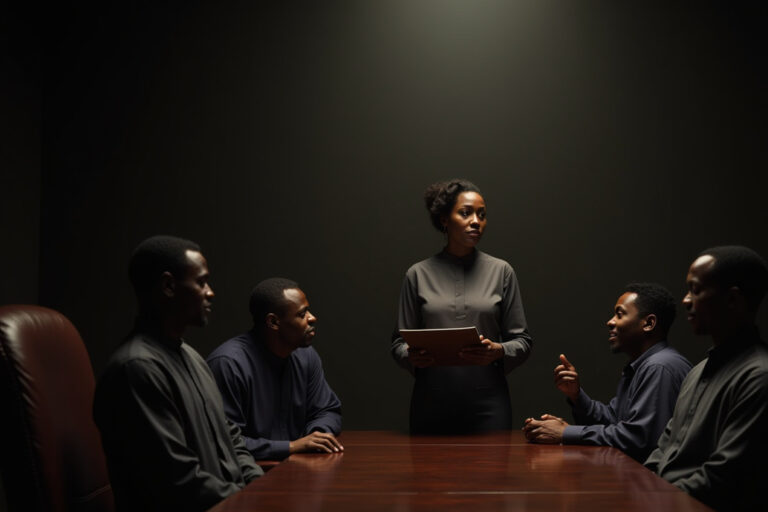A creative reflection on power, womanhood, and unwelcome hands
The room had no locks.
It had a grand table, polished daily, with chairs that creaked only when a woman sat in them. The walls were lined with certificates and smiling portraits of men who never looked directly at the camera. The air smelled of ambition, and something else. Something rotten beneath the varnish.
Natasha Akpoti-Uduaghan walked in wearing clarity and calm like perfume. Her steps were measured, heels clicking not in fear but in announcement. I am here to work.
She carried files: detailed, documented, disciplined. She laid them before them like offerings. Numbers. Strategies. Reforms.
But they looked at her ring finger.
“You forgot something,” one of them said, his voice laced with the kind of humour that leaves bruises. “No ring today? Invitation to treat, perhaps?”
Laughter followed. Not from her. Never from her.
She did not flinch. Not yet.
The next day, she wore the ring. A full circle of metal meant to say, I am spoken for. But it did not matter. Nothing stopped the whisper of a hand brushing too close, or a look that lingered too long.
Another chuckle came.
“Your husband must be a lucky man. That waist… you must be a real dancer.”
She smiled then. Not because it was funny, but because rage, when not allowed to scream, sometimes smiles.
Later, in a quieter room with softer lights and no audience, a voice asked her:
“Does it get easier?”
Natasha paused. Looked away. Then back.
“I thought the worst was over,” she said, voice steadying itself against tears. “But for a woman who dares to lead, who dares to be loud and unapologetic, the worst is a hallway you keep walking through. Again, and again. And again.”
In another country, far away, a woman saw the headlines and sent a message:
“I know this room. Ours had no locks either.”
And another:
“They laughed when I spoke up too.”
And another:
“They want our minds until they remember we have bodies.”
But Natasha stayed. In the room without locks. Not because she liked the tension, the laughter, or the shoving down of shame.
She stayed because someone had to.
She stayed so that one day, another woman would enter that same room and not be met with jokes, but with questions about her work.
She stayed because dignity is not something you ask for.
It is something you stand for, even if your knees buckle under the weight of it.
This is not just Natasha’s story.
It is a mirror.
And it is time we all stopped laughing.





